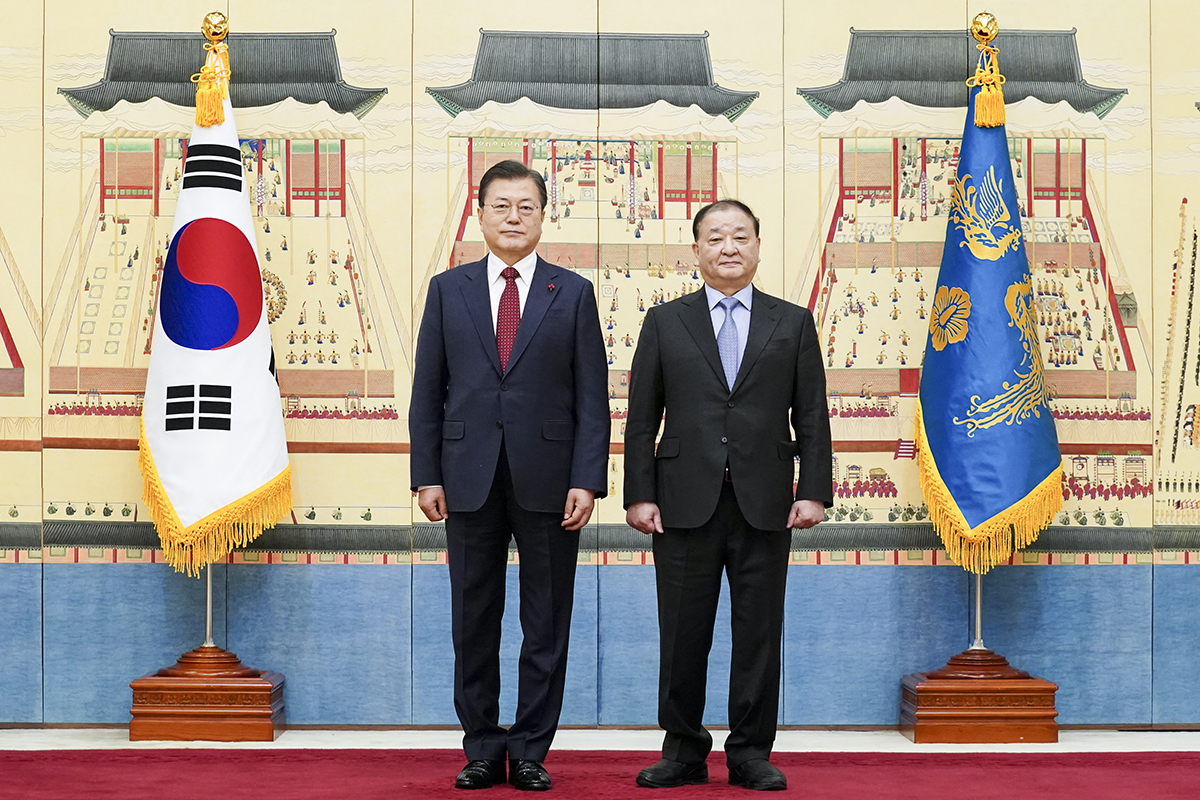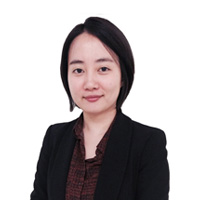When will Japan end its open hostility toward South Korea?
By Lee Ji-yoonPublished : March 9, 2021 - 17:14
South Korea-Japan ties long strained over wartime history are showing few signs of recovery, with Seoul’s new Tokyo envoy facing almost open hostility from local authorities.
According to diplomatic sources Tuesday, Korea’s new ambassador to Japan, Kang Chang-il, has yet to meet with Japanese leaders, a rarity in light of diplomatic protocol.
Kang arrived in Japan on Jan. 22 and started work on Feb. 14 after a two-week quarantine. But his request for a courtesy visit to the prime minister or the foreign minister has received no response over the past month.
His predecessor Nam Gwan-pyo met with then-Foreign Minister Taro Kono just four days after his arrival.
According to diplomatic sources Tuesday, Korea’s new ambassador to Japan, Kang Chang-il, has yet to meet with Japanese leaders, a rarity in light of diplomatic protocol.
Kang arrived in Japan on Jan. 22 and started work on Feb. 14 after a two-week quarantine. But his request for a courtesy visit to the prime minister or the foreign minister has received no response over the past month.
His predecessor Nam Gwan-pyo met with then-Foreign Minister Taro Kono just four days after his arrival.

Japan’s Yomiuri Shimbun called the cold reception a “countermeasure” against Korea, saying Seoul is reluctant to mend bilateral ties.
“The Japanese government has no intention to meet the new ambassador until Korea comes up with a new acceptable proposal to solve sex slavery and forced labor issues,” the paper reported Monday, citing an unnamed Foreign Ministry source.
A first phone call between Korea’s newly appointed Foreign Minister Chung Eui-yong and his Japanese counterpart, Toshimitsu Motegi, has also been delayed for more than a month -- possibly for the same reason.
Japan’s open hostility toward Korea has continued despite President Moon Jae-in’s budding efforts to achieve rapprochement.
In November, the president named the former four-term lawmaker with the ruling Democratic Party of Korea as the country’s top envoy to Tokyo. Kang is known for his expertise on Japan-related issues, having led the Korea-Japan Parliamentarians’ Union for years.
His appointment was seen as a reflection of the president’s willingness to resolve outstanding issues between the two neighboring countries upon the inauguration of Prime Minister Yoshihide Suga in September.
Moon’s rhetoric on Japan has also changed dramatically in recent months. The president, who had maintained a hard-line stance on historical issues, has hinted at a more flexible approach, saying Korea is ready to talk with Japan anytime to promote stronger cooperation and that disputes over history should be addressed separately.
The reconciliatory overtures come as US President Joe Biden stresses the importance of trilateral cooperation with Seoul and Tokyo in the face of an assertive China and a defiant North Korea.
Moon has also sought Japan’s cooperation in creating fresh opportunities to reengage with North Korea, amid expectations that the Tokyo Olympics, slated for July, could set the mood for the resumption of dialogue with Pyongyang.
But Japan is not officially responding to the overtures, giving the cold shoulder to top diplomats from Seoul.
Yukio Hatoyama, who served as Japanese prime minister from 2009-2010, criticized the Suga administration’s lack of will and energy in dealing with the prolonged feud with Korea and other neighboring countries.
“For now, Suga’s top priority is COVID-19 and Tokyo Olympics only. But his mishandling of the issues is driving down his approval ratings,” he said Monday in a radio interview with Seoul’s TBS.
“Rather than making efforts to resolve the strained ties with Korea, the government and the ultra-rightists could use a sense of hostility toward Korea as a way of regaining approval,” he added, stressing that many Japanese people still feel close to Korea.
Japan has claimed that historical issues, including its apology and responsibility, have already been settled under a 1965 treaty signed between the two countries. But Korean survivors of its colonial atrocities have continued their legal fights.
A series of court rulings in favor of Korean victims have led to vehement protests by Japan but the Korean government has maintained its “victim-centric” principles that the government should not intervene in the legal lawsuits waged by individuals.
Over the years of hostility, the decades-old rivalry has plummeted to one of the lowest ebbs, spilling over into the trade and security realms now.
Experts say Japan is asking Korea to compromise -- for example, by equally sharing the burden of compensating wartime victims from a humanitarian perspective. The idea was proposed by former Assembly Speaker Moon Hee-sang last year but met with criticism for blurring Japan’s responsibility.
“For now, any new proposal from Korea, not reconciliatory gesture or rhetoric, would help resume the stalled talks, opening room for US mediation,” said Shin Beom-chul, director of the Center for Diplomacy and Security at the Korea Research Institute for National Strategy.
“But with a compromised deal, Moon could risk losing his political capital, considering the sensitivity of the Japanese issue here. It would be a tough decision for him.”
By Lee Ji-yoon (jylee@heraldcorp.com)








![[Graphic News] More Koreans say they plan long-distance trips this year](http://res.heraldm.com/phpwas/restmb_idxmake.php?idx=644&simg=/content/image/2024/04/17/20240417050828_0.gif&u=)
![[KH Explains] Hyundai's full hybrid edge to pay off amid slow transition to pure EVs](http://res.heraldm.com/phpwas/restmb_idxmake.php?idx=644&simg=/content/image/2024/04/18/20240418050645_0.jpg&u=20240419100350)






![[From the Scene] Monks, Buddhists hail return of remains of Buddhas](http://res.heraldm.com/phpwas/restmb_idxmake.php?idx=652&simg=/content/image/2024/04/19/20240419050617_0.jpg&u=20240419175937)

![[KH Explains] Hyundai's full hybrid edge to pay off amid slow transition to pure EVs](http://res.heraldm.com/phpwas/restmb_idxmake.php?idx=652&simg=/content/image/2024/04/18/20240418050645_0.jpg&u=20240419100350)

![[Today’s K-pop] Illit drops debut single remix](http://res.heraldm.com/phpwas/restmb_idxmake.php?idx=642&simg=/content/image/2024/04/19/20240419050612_0.jpg&u=)